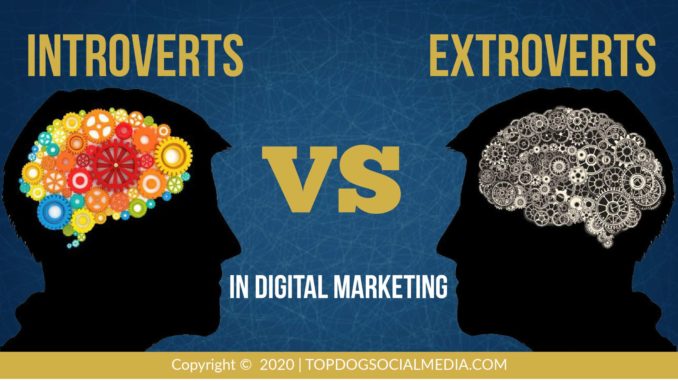
Many perceptions float around about the differences between introverts and extroverts.
Not all of them are true.
The most common misconceptions about introverts include the following statements. They are believed:
It is also commonly thought they are not good leaders or great public speakers.
Common misconceptions about extroverts include the following statements. They are believed:
They are also often thought of as not creative or good listeners.
While there are certainly extroverts or introverts who fit these traits, it is a mistake to assume they are the norm for people with these personality types.
The true difference between extroverts and introverts is explained by the nervous system and the brain’s response to the neurotransmitter dopamine.
According to Scott Barry Kaufman, the Scientific Director of The Imagination Institute, dopamine is a chemical released in the brain that induces reward-seeking behavior. This neurotransmitter provides you with motivation to seek external rewards, such as earning money, climbing the social ladder, attracting a mate or getting selected for a high-profile project at work.
When dopamine floods the brain, both introverts and extroverts become more talkative, alert to their surroundings and motivated to take risks and explore the environment. While both introverts and extroverts have the same amount of dopamine available, what makes introverts and extroverts different is that dopamine is more active in the brains of extroverts.
Introverts, on the other hand, prefer the feelings produced by the neurotransmitter acetylcholine. Although also linked to pleasure, it differs from dopamine because it makes you feel good when you turn inward. It powers your abilities to think deeply, reflect and focus intensely on just one thing for a long period of time.
This explains why extroverts generally find stimulating situations preferable while introverts lean towards calm, introspective situations.
Teamwork is vital in digital marketing, especially in larger companies, where you need to work with a variety of individuals and departments.
Even if you are a solopreneur, you will often need to work with other contractors or professionals to get larger or more complex projects completed (graphic designers, copywriters, editors, video editors, etc.).
Extroverts tend to:
If you are an extrovert, you can help introverts perform at their best by:
While working in teams might come most naturally to extroverts, introverts can also contribute to groups in meaningful ways. Although they usually work well in smaller groups, even in a larger group they can increase the group’s focus and effectiveness because they are frequently detail-oriented and precise.
If you are an introvert, you can facilitate teamwork with your extrovert team members in the following ways:
